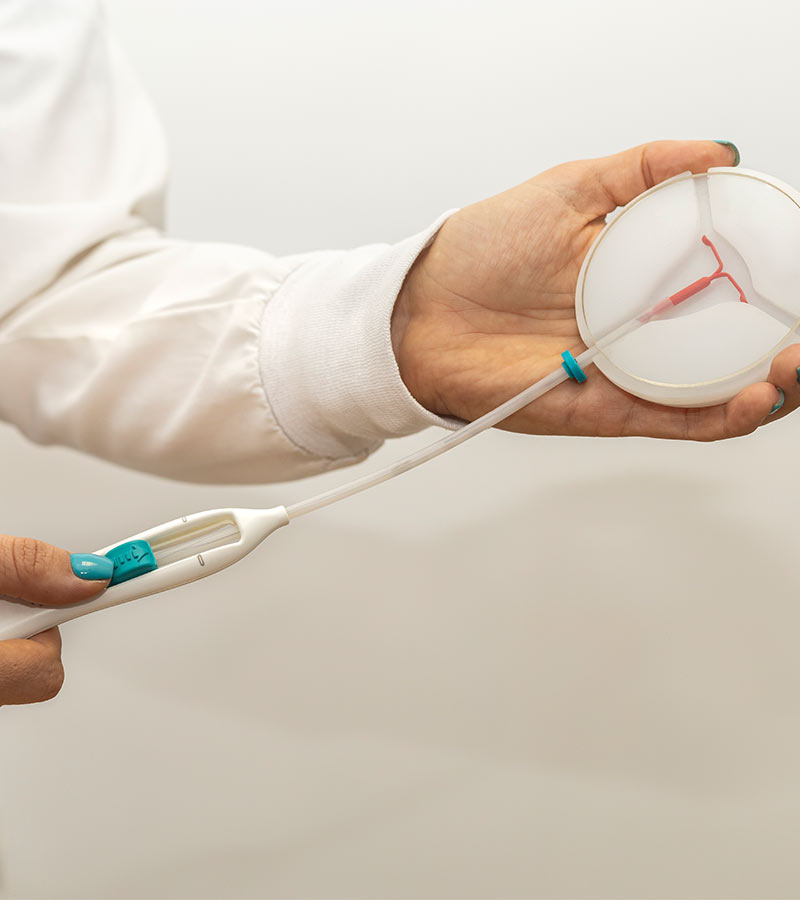Rapid Access Gynaecology also offers a Family Planning Clinic, our Family Planning Clinic London, specialises in contraception for women with complex medical problems who require specialised care in London. With so many different methods to choose from we will find one that suits you perfectly.
Each method differs in how effective they are, how long they last.
A consultation with Mr. Morris will help you determine the best form of contraception for you.
Options for contraception include :
- Oestrogen containing contraceptive pills
- The progesterone only contraceptive pill or “mini-pill”
- Depo-Provera
- Implanon
- Ballerine IUD/ coil
- Other IUD’s/coil
- Tubal ligation
There are 3 types of oral contraception. The 1 st is the combined oestrogen/progesterone, the 2nd the progesterone only, and the 3rd is the continuous (or the extended) pill use.
Women have been fortunate to have been able to use hormonal contraception for over 60 years. At present 25% of women aged between 15 and 44 use oral contraception as their preferred choice. The most prescribed pill is the combined oral contraceptive pill, which contains oestrogen and progesterone. It is the progesterone component which prevents pregnancy, and the oestrogen which stops menstrual bleeding.
In a perfect world, perfect use would mean the method is used consistently and correctly every time( i.e.,1 woman out 100 would get pregnant in the first year of use). However, we are human, and there is a natural failure rate and about 9 women out of 100 will become pregnant within the first year of use. This is due to human error, and the failure rate for the combined oral contraceptive pills is approximately 9%.
There are also benefits from using the combined oral contraceptive pill. Science confirms that there is approximately a 50% reduction in the risk of endometrial cancer in women who have used combined oral contraceptives, compared with those who have never used oral contraception. The effect of this lasts for up to 20 years.
The combined oral contraceptive pill decreases the risk of ovarian cancer by over 25% and the longer it is used for, the greater the risk reduction. This too is very important. Other studies have shown that the oral contraceptives have reduced the risk of colon cancer by up to 18%. I also prescribe oral contraception to my patients for the treatment of acne and Hirsutism.
The literature has confirmed reassuringly that most side-effects of oral contraceptives are mild and disappear with continued use or if a woman chooses to move to another pill product. The most common complaint women have is breakthrough bleeding, and this is due to the progesterone component. Some women do complain of nausea, headaches, breast tenderness and an increase in a vaginal discharge, and some women have also told me that it can ‘block’ their libido. Most of these symptoms will resolve either with time or switching to another product. I do advise women who have a pre-existing heart or cardiovascular problem or who smoke not to use the contraceptive pill. We know that the oral contraceptive progesterones can potentially impair glucose metabolism in the first 6 months, and women who are diabetic may need to increase their insulin levels during this time.
Oral contraceptive pills can induce hypertension in approximately 5% of women and will exacerbate hypertension in about 15% of women who have this pre-existing condition.
It is important for all women to remember, that the combined oral contraceptive pill will not protect against sexually transmitted infections, and I recommend to women that if they have a new partner, it is important they use a barrier method such as a condom.





